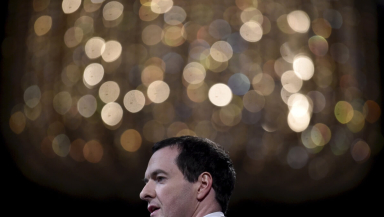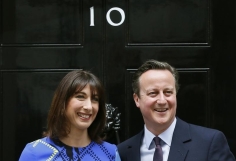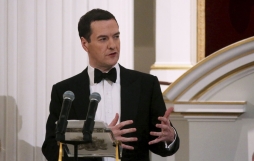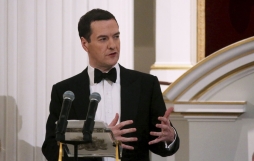
Chancellor George Osborne will say today how he plans to reshape the economy by chopping welfare spending, easing the tax bill for workers and tackling some of the biggest challenges facing the recovery.
When he presents his budget this afternoon it will mark the first time in nearly 20 years that the Conservative Party has had a free hand to decide how much Britain spends and raises in taxation.
It also offers a chance for Osborne to boost his chances of becoming Britain's next prime minister if David Cameron steps down before the next election in 2020 as he has said he will.
In the last government, the Conservatives' Liberal Democrat coalition partners claimed to have prevented some painful welfare cuts as the two parties tried to wipe out Britain's huge budget deficit together.
Now, after the Conservatives unexpectedly won an outright majority in May's national election but with the deficit only half fixed, Osborne looks set to curb spending on benefits which have helped offset the rising cost of housing for many Britons.

Britain's economy is due to grow by 2.5 per cent this year, according to the Bank of England, faster than most other advanced countries. But its budget deficit of nearly five per cent of economic output in the 12 months to March is one of the biggest among rich economies.
Osborne is likely to cut Britain's hefty bill for tax rebates to low-paid workers, as he hopes a recovery in earnings from the effects of the financial crisis will continue in the coming years.
Osborne has also turned his sights on discounted rents paid by tenants in public housing, regardless of their income levels.
"We do have a merry-go-round (on) which people pay their taxes and then get back benefits, but I think the best answer to that is to cut people's taxes," he told BBC television on Sunday, looking ahead to the budget.
"More broadly, you do have to look at the benefits system and the welfare system and make sure it is fair for working people."
As well as tackling the budget deficit, Osborne is expected to address Britain's weak productivity record which could undermine the economic recovery in the coming years. Employers want an extension or expansion of tax breaks to encourage investment in new equipment.
The budget statement may also include new ways to narrow a big shortfall in home-building which has helped make houses too expensive for many families.
Top rate tax cut unlikely
With so many spending cuts in the pipeline, Osborne has signalled that he will not at this stage heed calls from within the Conservative Party for a politically controversial lowering of the 45 per cent income tax rate for top earners.
Instead, he wants to keep on increasing how much workers can earn before they start paying income tax and raising the threshold for the 40 per cent tax rate, the second-highest bracket. He also plans to increase a trigger level for paying inheritance tax, as promised at the election.
To avoid derailing his push to fix Britain's public finances, Osborne may announce the end of a freeze on fuel duty and reduce tax breaks for funding private pensions.
The 44-year-old has seen his reputation rebound along with the economic recovery in the past two years and he was promoted to be Cameron's deputy for helping to secure May's election victory.
Osborne has dismissed a call from the Organization for Economic Co-operation and Development to smooth his planned cuts over the next five years. Britain's official budget forecasters have described the cuts, to be followed by a rise in spending shortly before the 2020 election, as a "rollercoaster ride".
The BBC reported late on Tuesday that Osborne would take three years, not two as originally planned, to reach the target of £12 billion in annual welfare savings.
But he is likely to point again to Greece's debt crisis to stress the importance of fixing Britain's finances quickly.
He is hoping that the recovery in spending power of many British workers, helped by near-zero inflation, will keep the economic recovery on track despite his renewed austerity push.

















